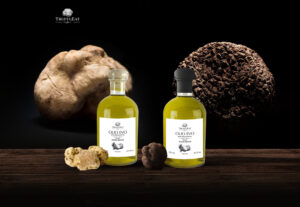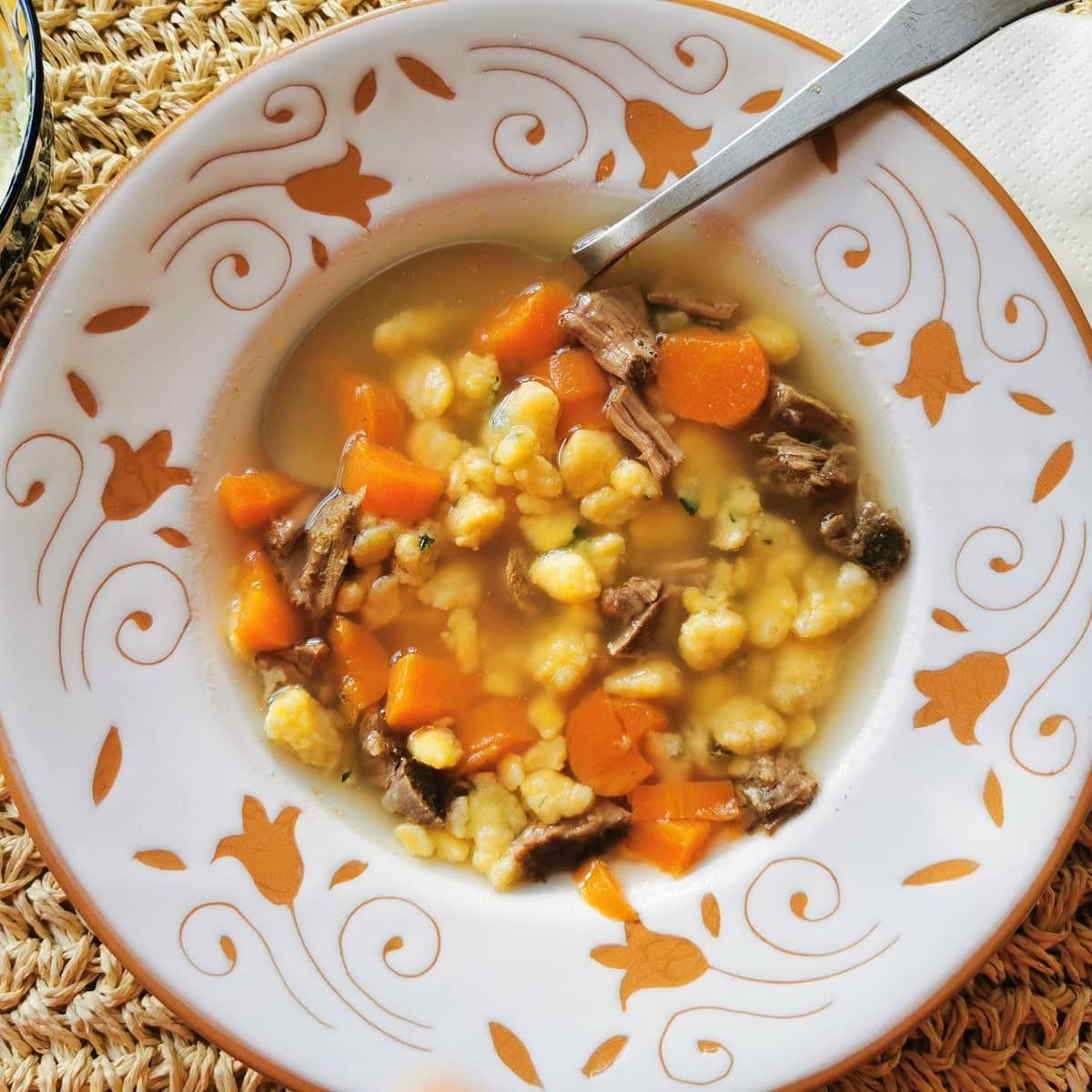
This homemade pastina in broth recipe, known as millefanti in brodo in Italian, is a traditional way to make an Italian comfort food classic. It’s also the healthiest and most nutritious version of a dish often referred to as ‘Italian penicillin’. Perfect for kids, invalids or just when you’re feeling under the weather. Plus, so much more flavourful than using dried pasta and ready-made broth!
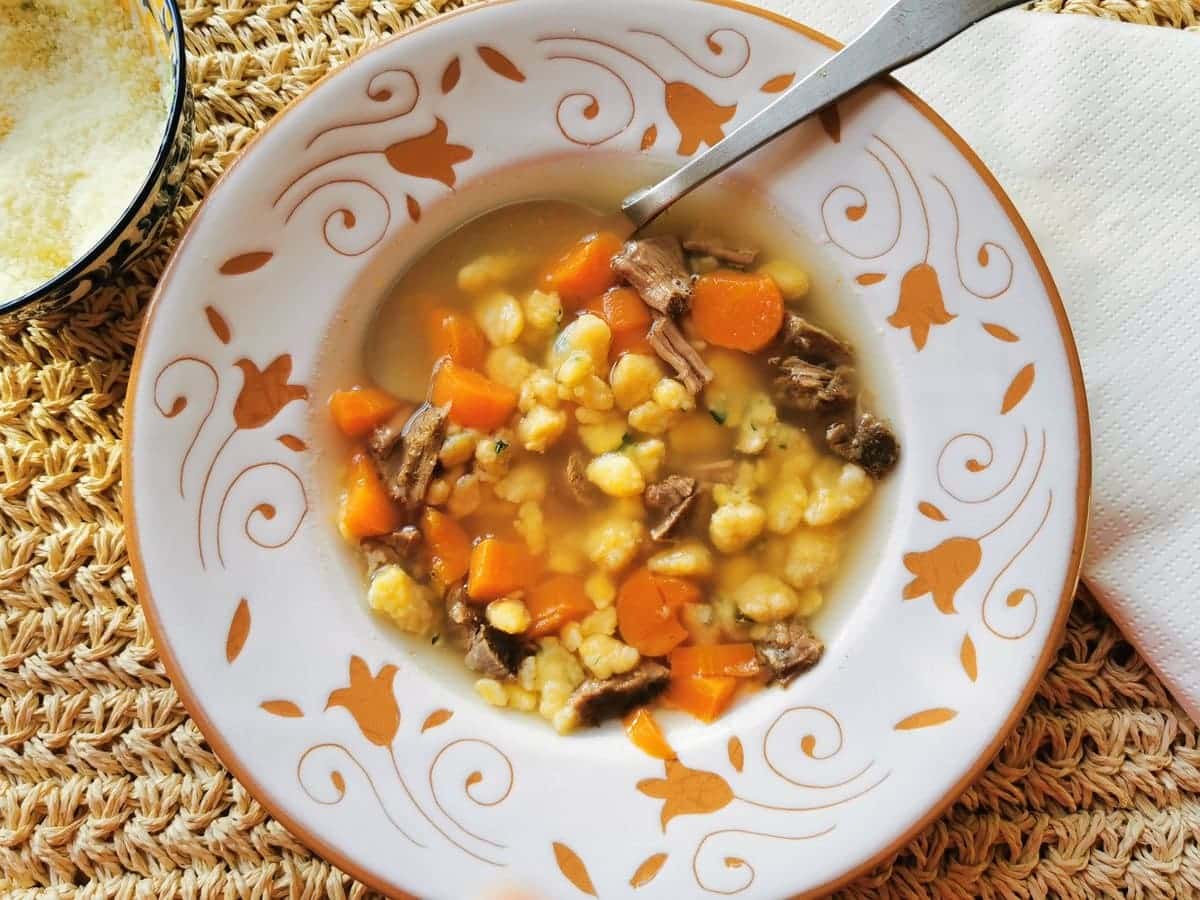
Homemade pastina has been around for centuries.
Italians have long been adding tiny pasta pieces to broth and soup. Centuries before you could buy boxes of tiny dried pasta stars, seeds or letters of the alphabet, soup pasta was made by hand by either grating or crumbling pasta dough. Even today, you can find homemade pastina on the table in Italian homes.
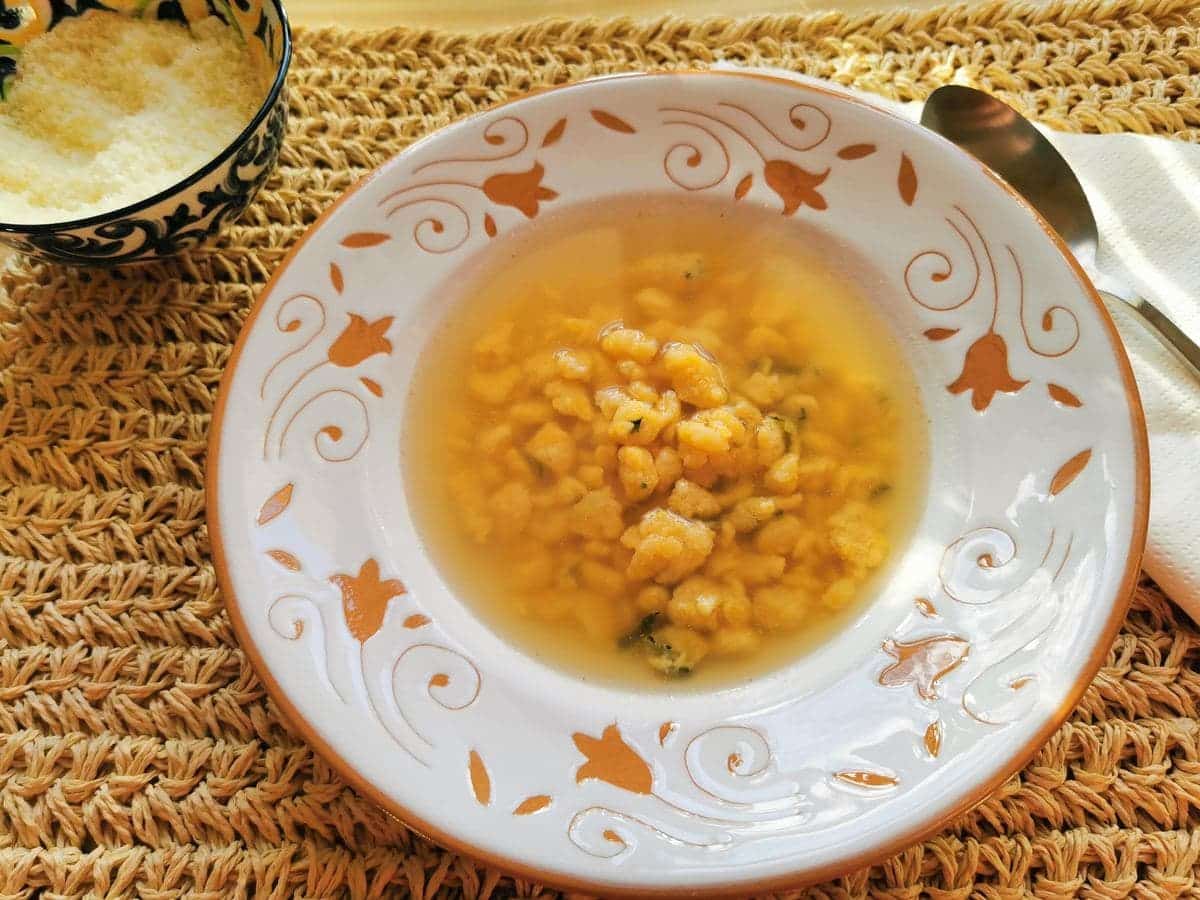
Of course, there are many different types of the homemade soup pasta we call pastina. Some used to be made with just hard wheat flour and water, particularly in the South of Italy. These were more common in the kitchens of the peasants and rural folk.
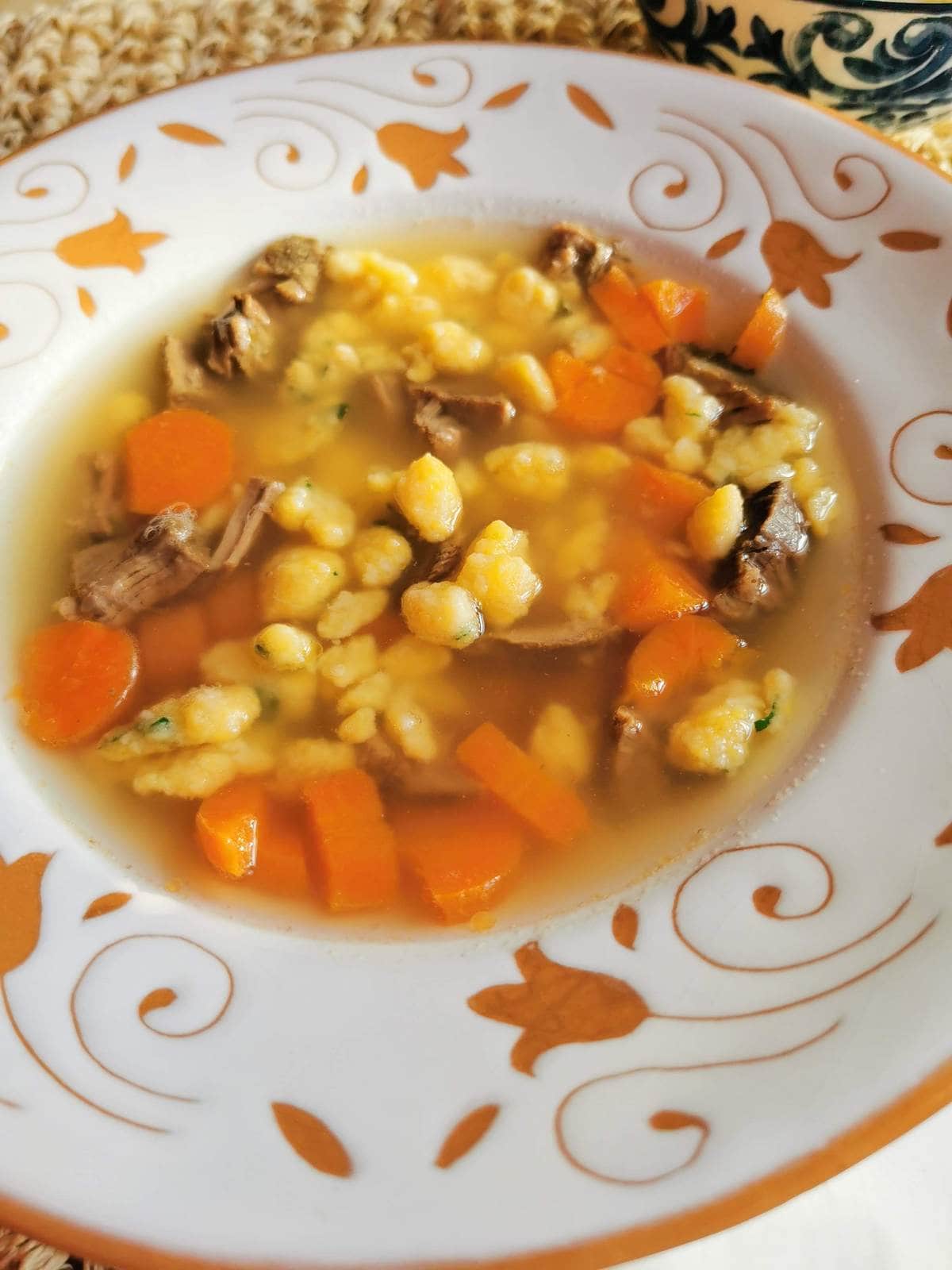
Other types of pastina were more luxurious and had eggs and cheese in the dough. These types were more often found on the tables of the rich or made for special occasions like weddings. Nowadays, homemade pastina with eggs and cheese is more popular than the plain flour and water version.
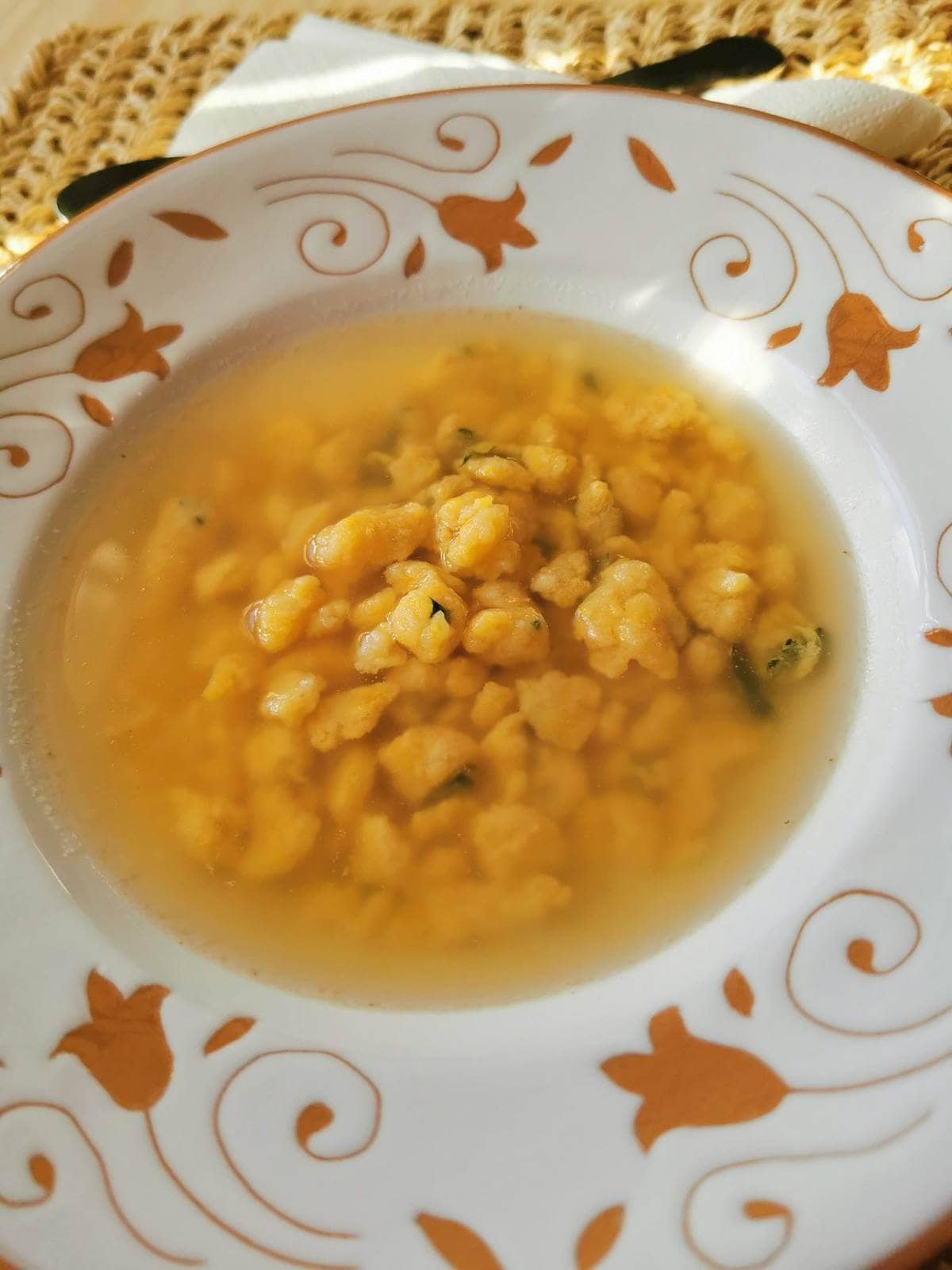
The egg and cheese pastina in this recipe comes from Basilicata and Puglia. You can find it referred to by different names, but the most well-known are millefanti (or milaffanti), semola battuta, bilbanti or triddhi. The word millefanti comes from the Greek ‘milefatos’, meaning minced or ground. Versions of millefanti are also made in Sicily and Naples.
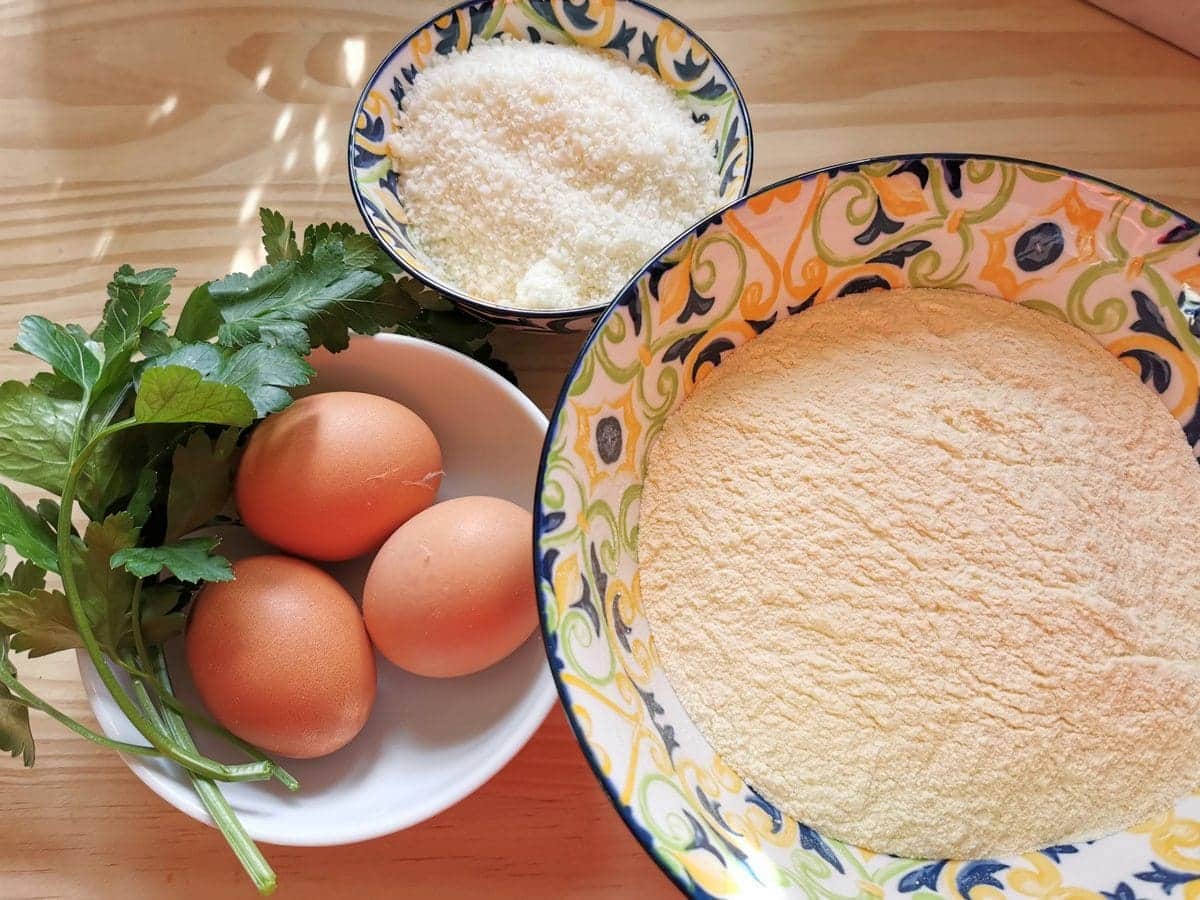
How to make homemade pastina.
To make millefanti you will need semolina flour (semola), eggs, parsley and grated Parmigiano. You can mix the ingredients together the old-fashioned way by mounding the flour on a pastry board and then creating a ‘well’ in the middle where you put the cheese, chopped parsley and eggs.
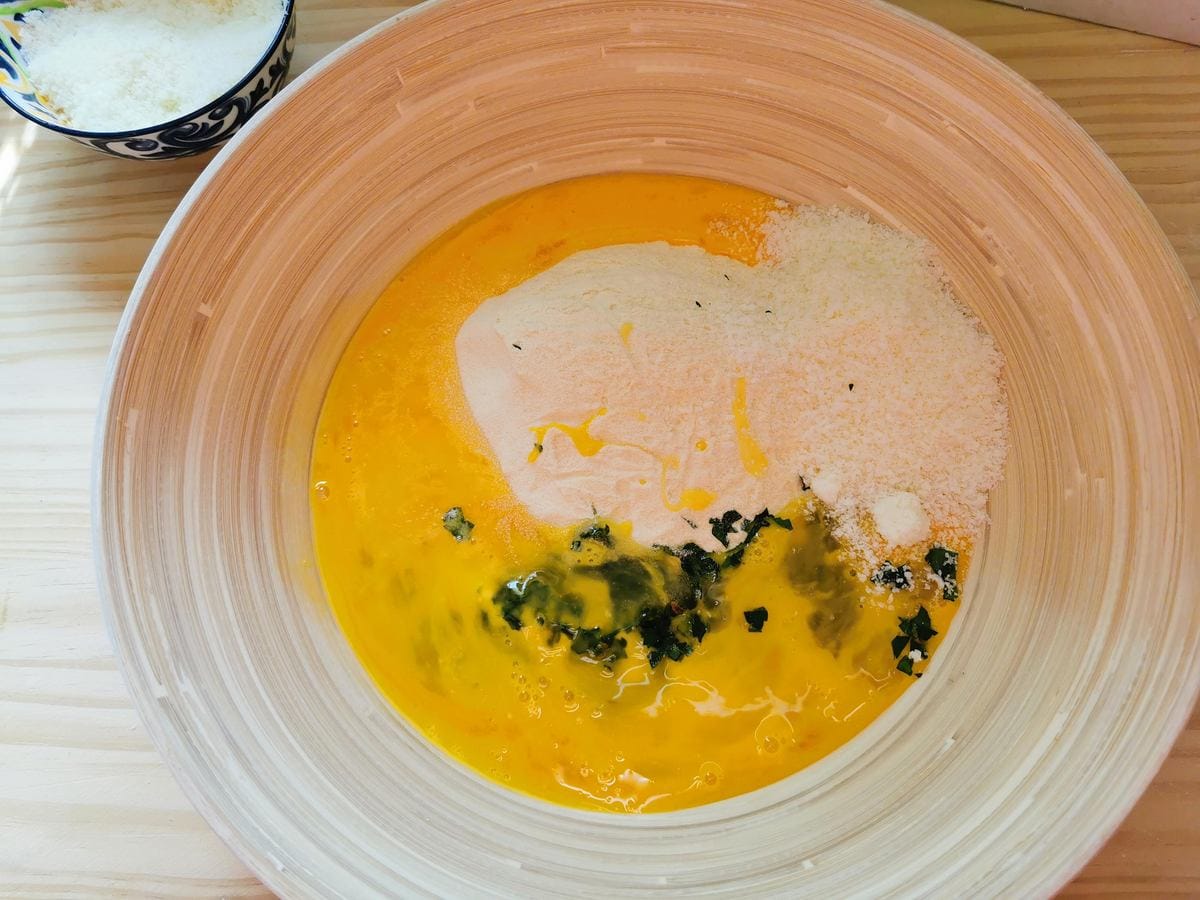
Then mix everything together first using a fork and then your hands. Then, create crumbles of dough by rubbing pieces of dough with your fingers, like you would for apple crumble.
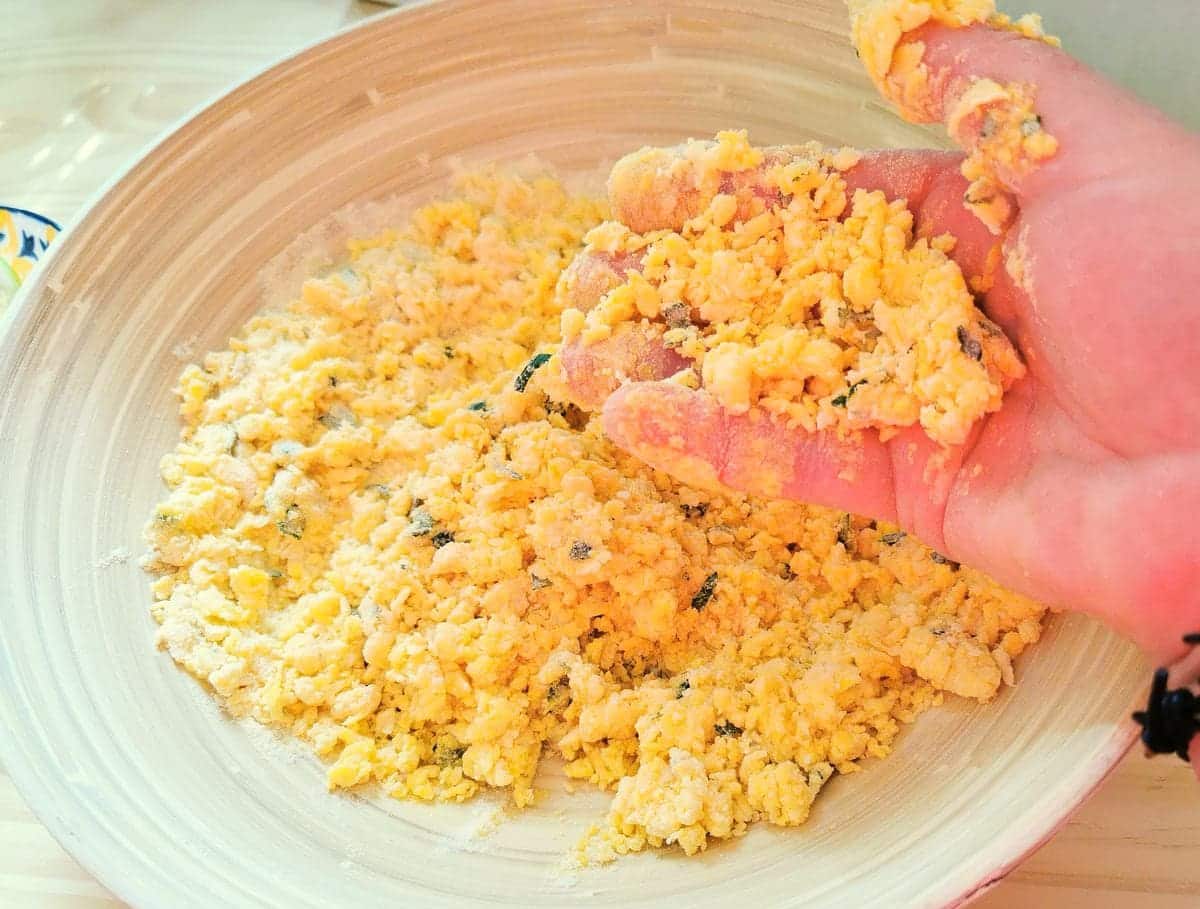
I prefer to use a bowl for this process. So, I put the flour, eggs, parsley and cheese in a large bowl. I mixed it all together gently using a fork and then made the ‘crumbles’ with my hands. The pieces of this homemade pastina need to be a soft but not wet. They also aren’t uniform in size and shape. That’s actually impossible to achieve.
Once the pastina dough pieces are ready, spread them out on a lightly floured surface to dry. You can actually make this pastina the day before using it.
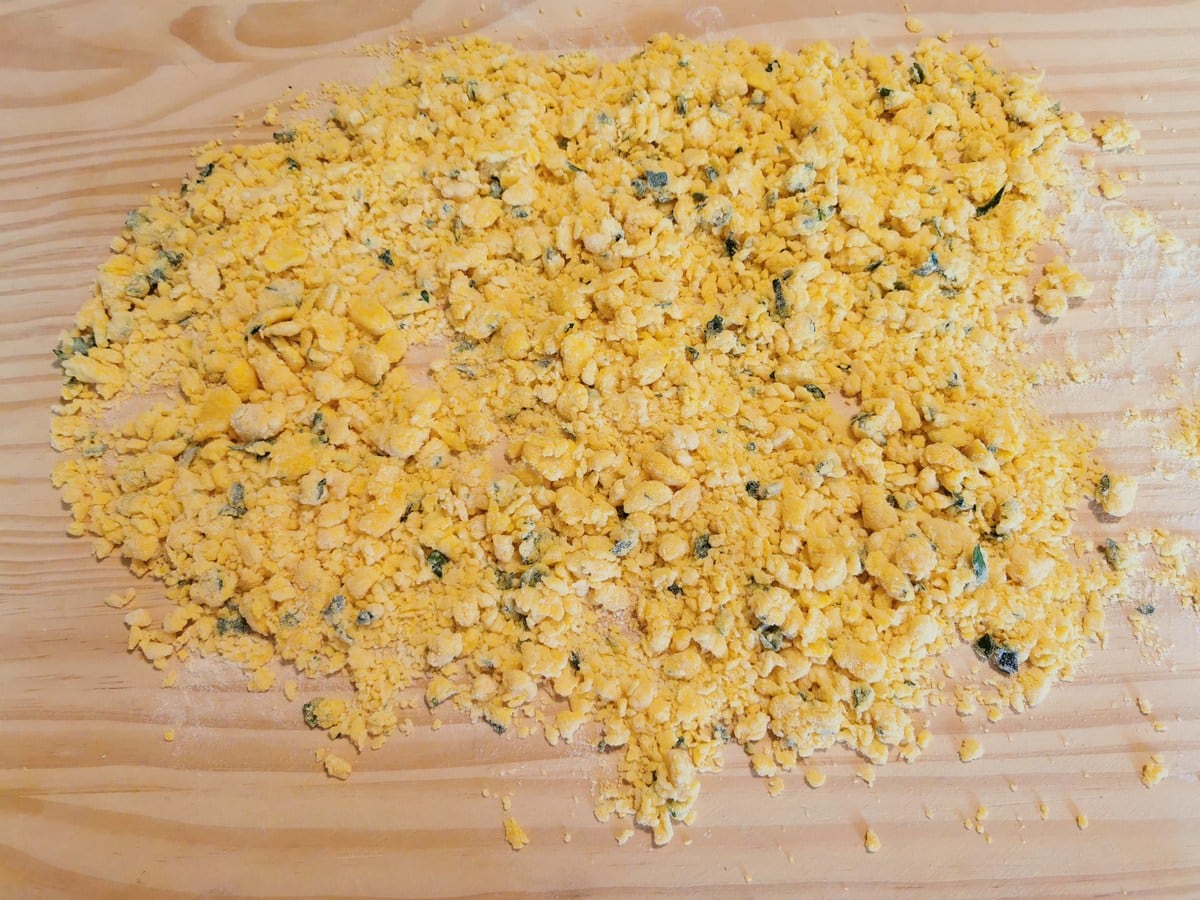
How to make the beef broth.
I decided to serve my pastina in a beef broth made with onion, carrot, celery, cherry tomatoes, bay leaves, beef joint bones and bone-in beef shank cross cuts. I like these cross cuts with the bone because they usually have marrow, which adds so much flavour and nutrients to the broth.
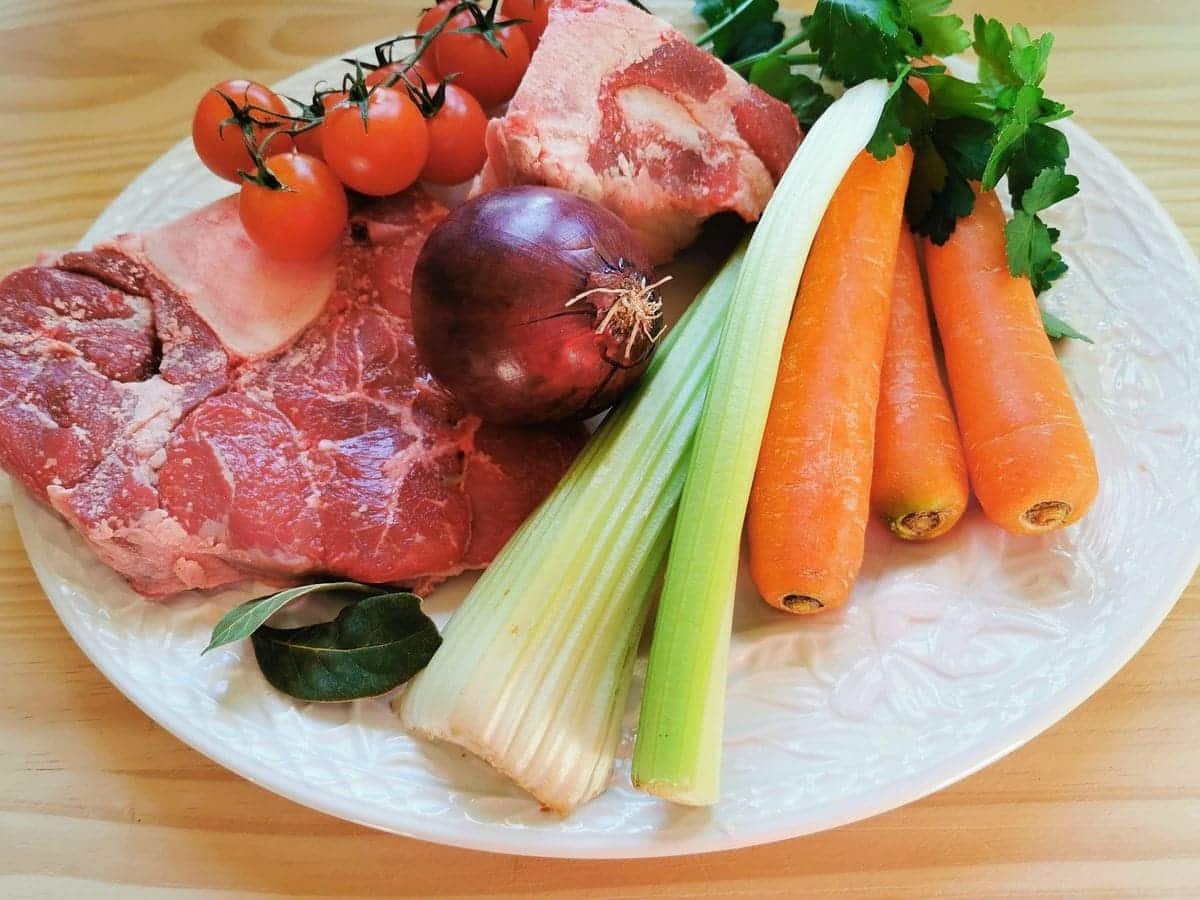
After preparing all the broth ingredients, I put them in a large pot, added water and salt and simmered it for about 2.5 hours! I added more water after about 2 hours as the liquid had reduced a lot and I skimmed off some of the fat that rose to the surface.
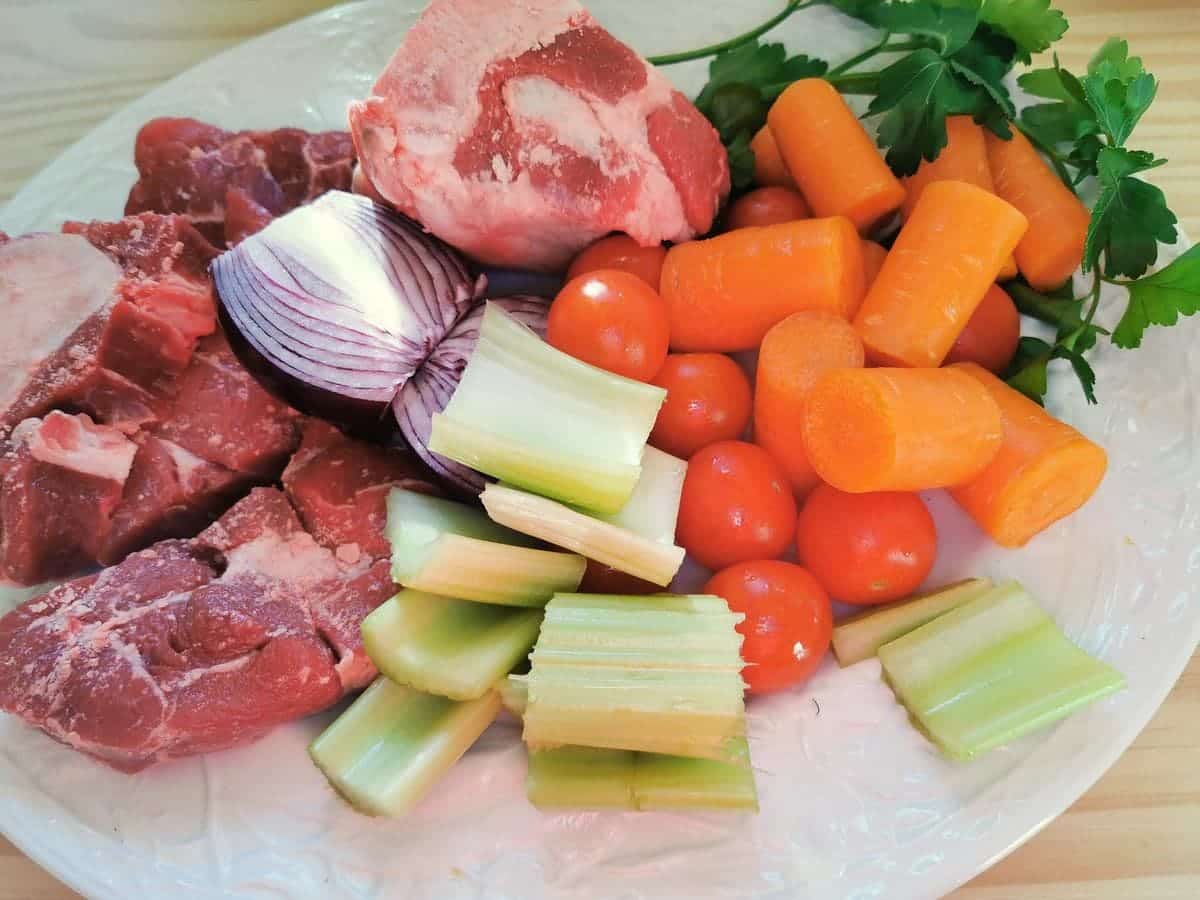
Once the broth was ready, I filtered off the liquid, set aside the bones, meat and carrots and discarded the rest of the vegetables. I then filtered the liquid again once it had cooled using a cheesecloth. As the broth cools more fat will appear on the surface.
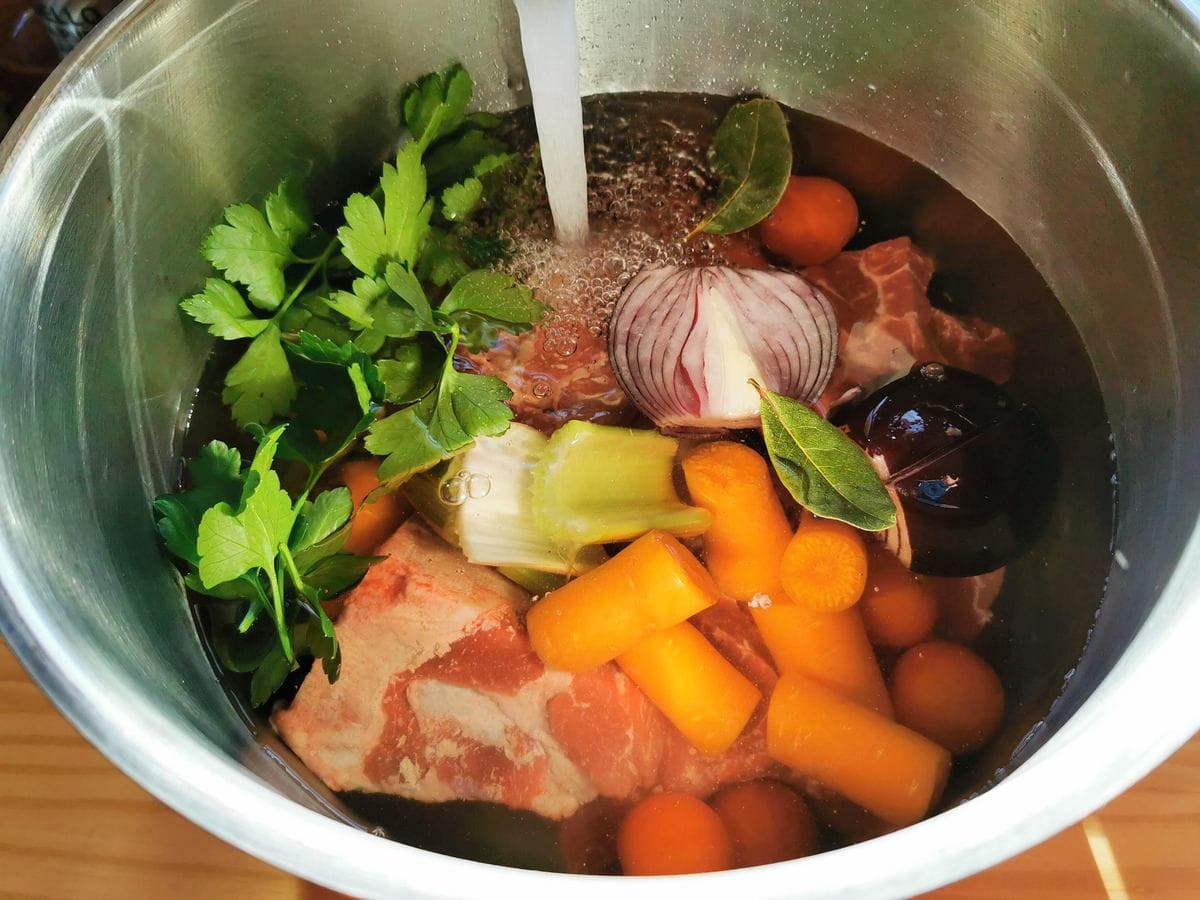
Should you filter beef broth?
How much you filter your broth depends on the cut of meat you used, how much fat congeals on the surface and personal taste. If your meat was quite lean and you don’t mind a little fat then just filter it once using a strainer to separate the solids from the liquid. The fat will melt when you reheat the broth.
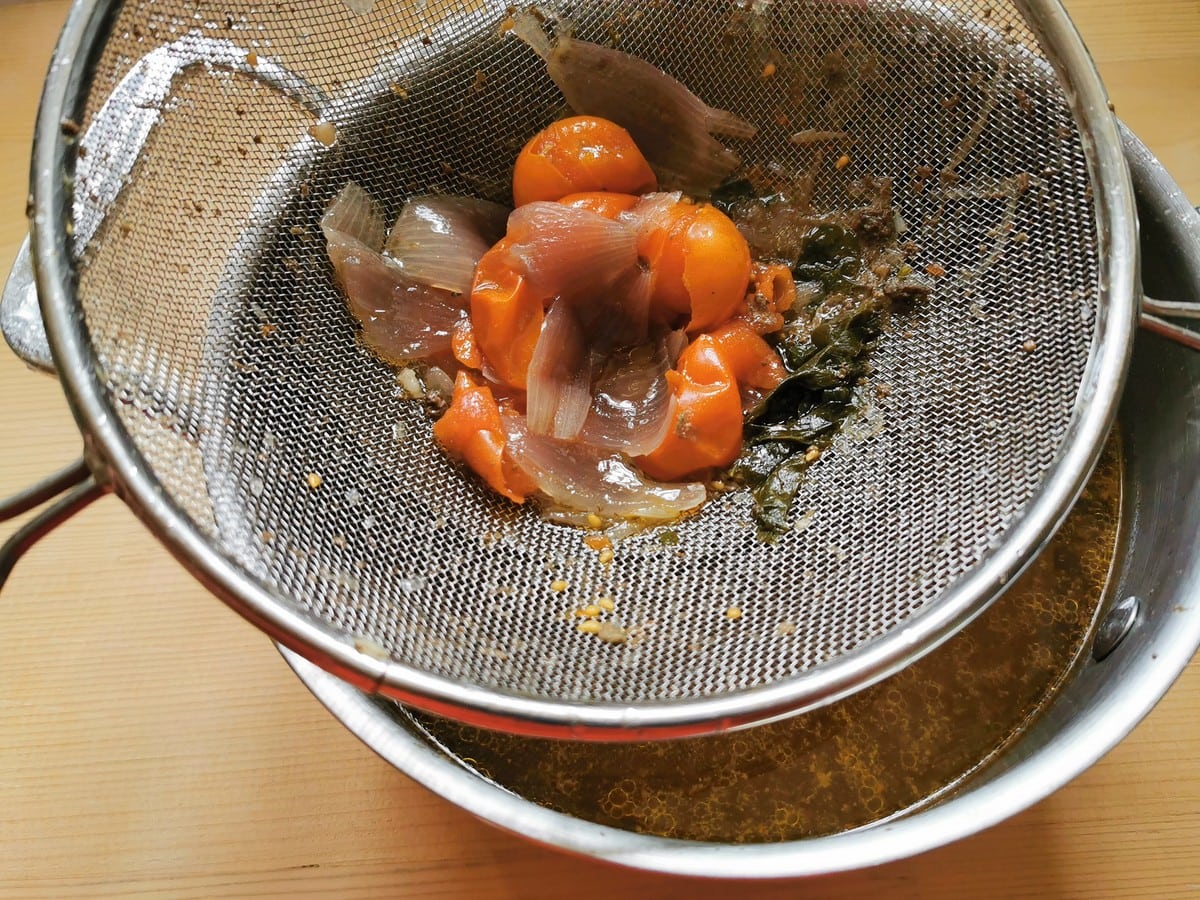
However, if you want your broth to be more like a consommé, then it’s a good idea to filter it a couple of times. Real consommé has egg whites in it, which help the solids to congeal at the surface. Obviously, broth doesn’t have egg whites and needs to be filtered well to reduce the fat and make it clearer.
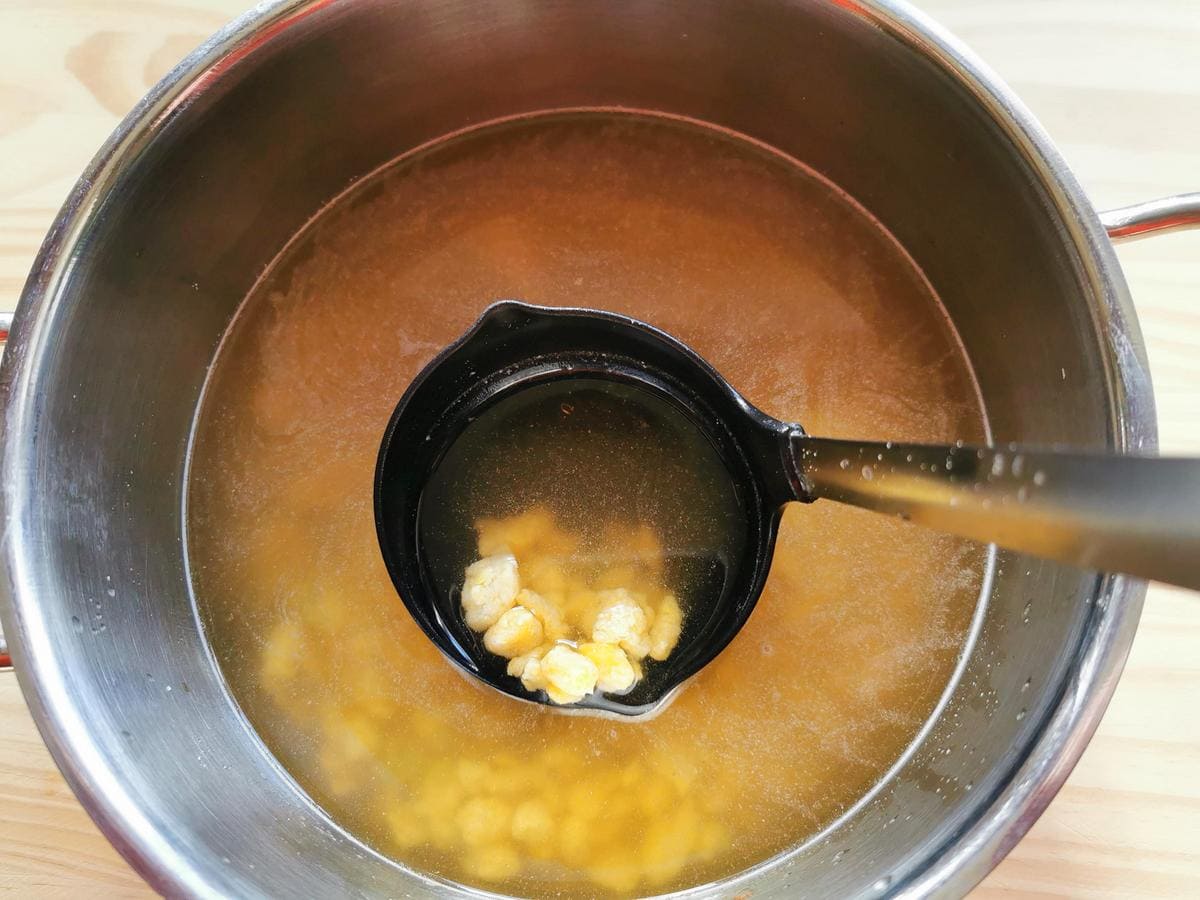
How to serve this homemade pastina in broth.
You can serve this homemade pastina in broth 2 ways, with clear broth or with meat and carrots in the broth as well. I did both as I had enough for 2 separate meals. My husband preferred it with the beef and carrots. I liked it without. The beef and carrots can also be used in another dish such as a cottage pie. My dog got the bones!
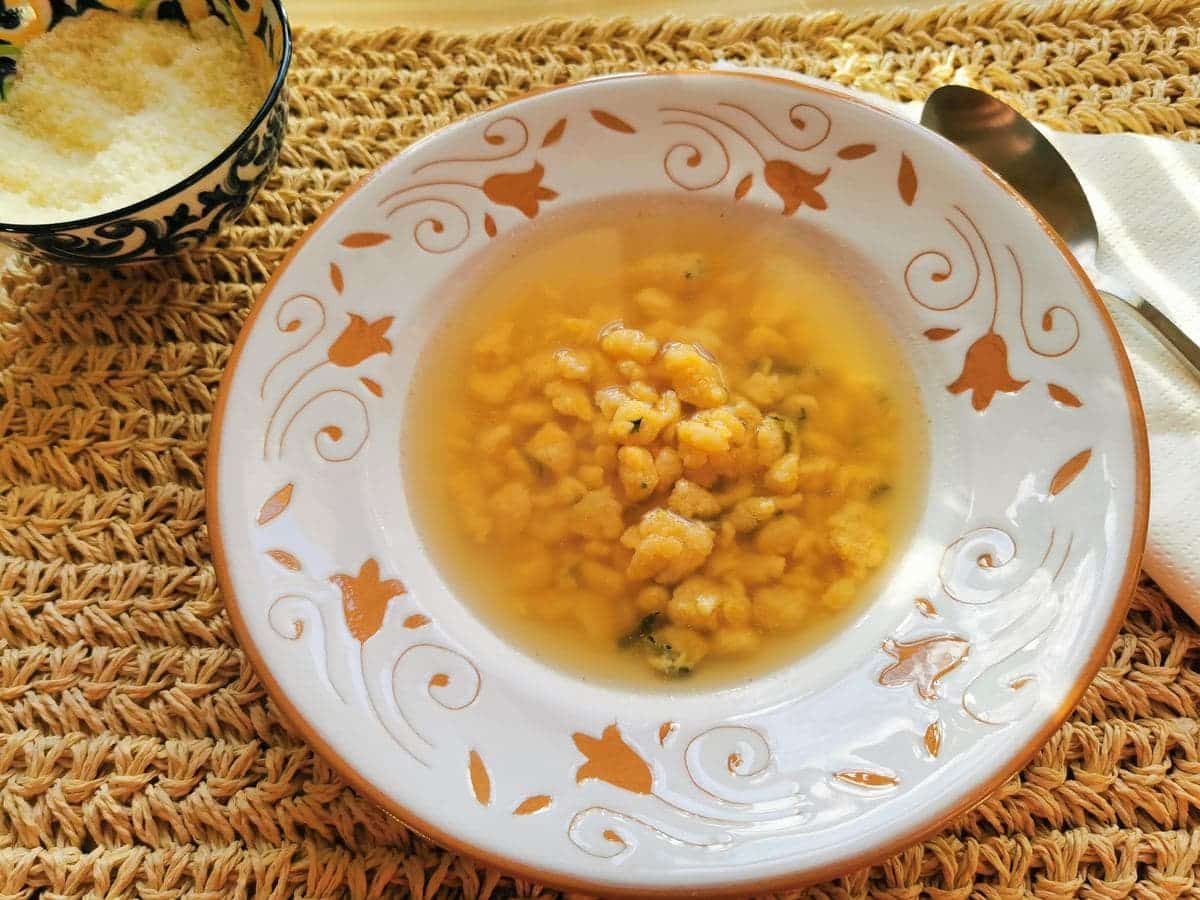
Whichever way you decide to serve this dish, you will first have to reheat the broth until it starts to boil and then add the millefanti to it. Cook the pasta for 6-8 minutes.
Next, either serve the pastina and broth as is or cut the carrots into smaller pieces, shred the beef and add them to the pasta and broth so they reheat. Serve immediately with some grated Parmigiano and chopped parsley if required.
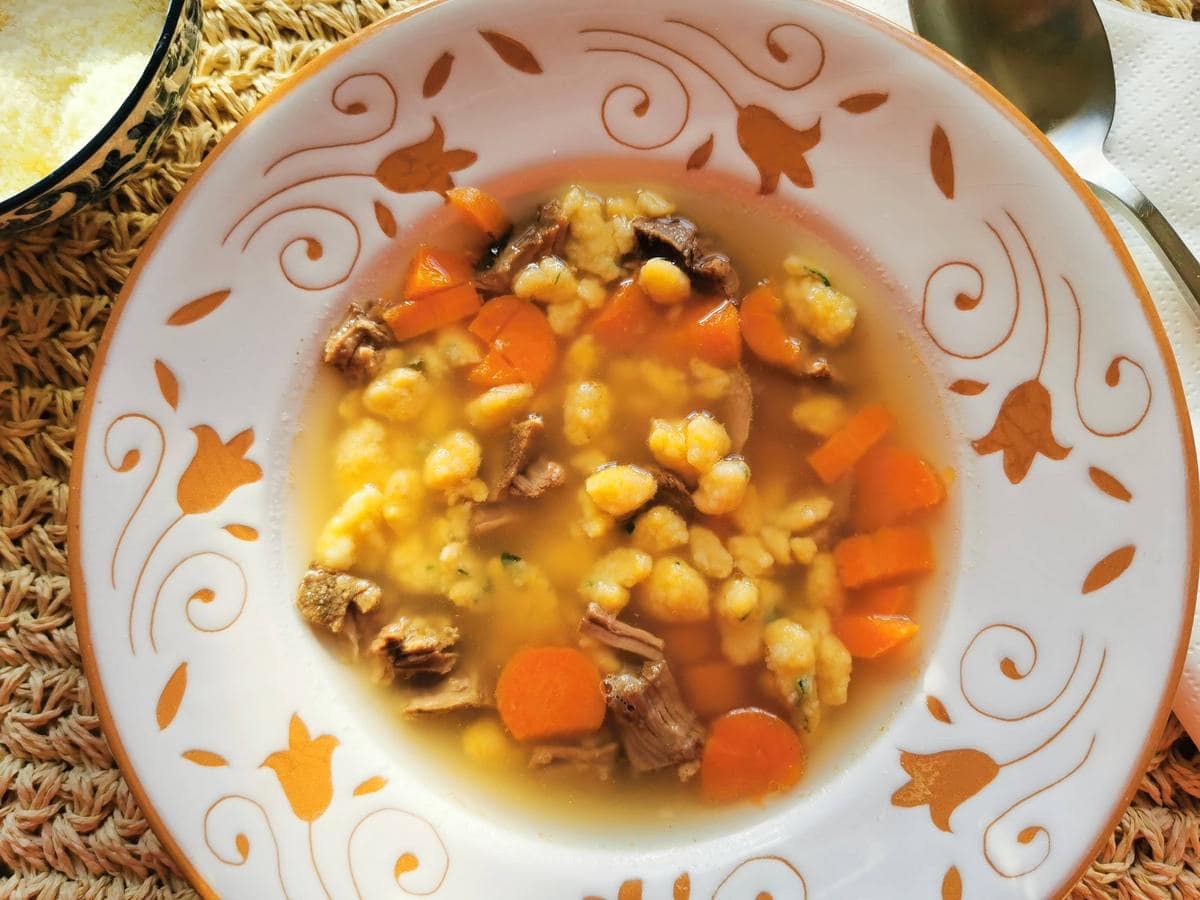
Other types of broth for homemade pastina.
If you prefer, you can serve this homemade pastina with a vegetable or chicken broth. The latter is actually the most traditional way and vegetable broth is the easiest to make.
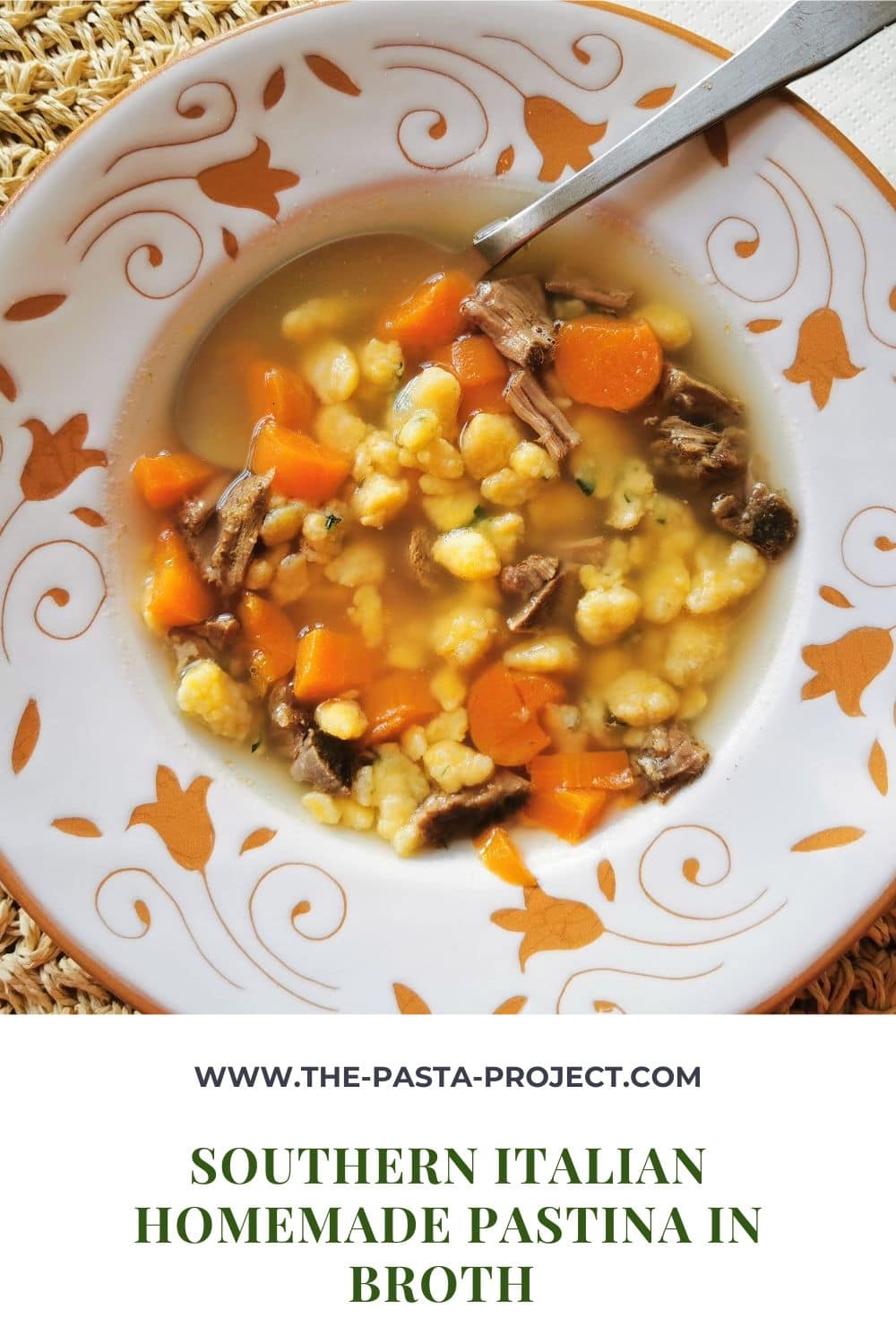
Can this pastina recipe be vegetarian?
To make a vegetarian version you will need to use a vegetarian parmesan in the homemade pastina as Italian parmigiano is made with animal rennet. Then cook and serve your millefanti in a vegetable broth.
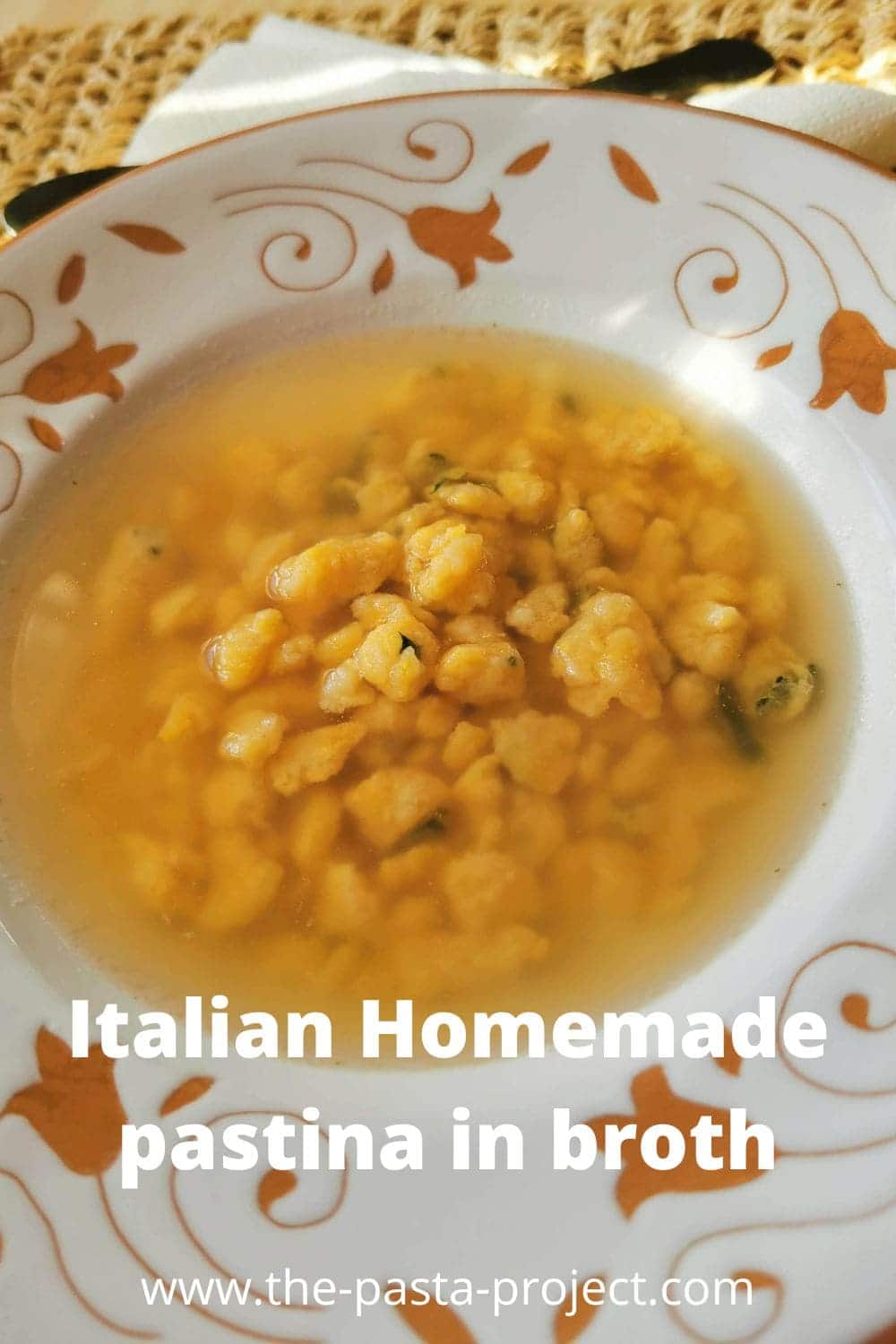
What to do with leftovers?
The uncooked pastina can be kept for 3-4 days in a cool dry place. The leftover millefanti with broth can be kept sealed in the fridge for 2-3 days and reheated on the stove top. Freezing is not recommended.
If you do try this millefanti pastina in beef broth recipe, I’d love to know what you think of it. Please write a comment here on the blog or post a comment on the Pasta Project Facebook page.
Your feedback means a lot to me!
Buon Appetito!
Other pasta soup recipes to check out.
- Italian chicken noodle soup
- Tuscan minestrone with orzo pasta
- Canederli in broth
- Fregola with clams
- Umbrian lentil soup with pasta
- Grattoni pasta with beef broth
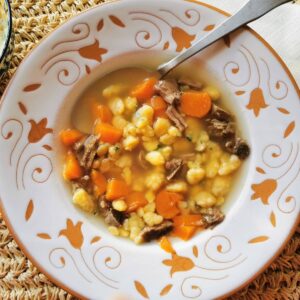
Homemade pastina in broth (millefanti in brodo)
![]() Jacqui
Jacqui
This homemade pastina in broth recipe is a traditional way to make an Italian comfort food classic. It’s also the healthiest and most nutritious version of a dish often referred to as ‘Italian penicillin’. So much more flavourful than using dried pasta and ready-made broth!
Prep Time 25 mins
Cook Time 3 hrs
Course Main Course, Soup, starter
Cuisine Basilicata, Italian, Mediterranean, Puglia, Southern Italian
Servings 6
Calories 386 kcal
For the homemade pastina
- 10.5 oz durum wheat semolina flour (300g)
- 3 eggs large
- 1 handful fresh parsley chopped
- 1 oz Parmigiano Reggiano (30g) grated (or vegetarian parmesan)
For the beef broth
- 2 beef bones
- 1.1 lbs bone-in beef shank cross cuts (500g)
- 2 carrots washed and cut into large pieces
- 2 celery stalks washed and cut into large pieces
- 1 onion peeled and halved
- handful cherry tomatoes washed
- 2 bay leaves
- 3 sprigs fresh parsley
- salt to taste
- freshly ground black pepper. to taste
- 8 pints water (4 litres)
Make the pastina.
-
Beat the eggs and chop the parsley. Sieve the flour into a large bowl. Add the eggs, parsley and cheese plus a pinch of salt. Mix everything together gently using a fork.
-
Once the eggs are well incorporated use you hands to continue mixing and then form crumbles using your fingers. Similar to making an apple crumble.
-
When the pastina is ready (quite dry but soft) turn the dough pieces out onto a lightly floured surface and leave to dry. You can make this pastina a day in advance. Keep it in a cool, dry place until ready to use.
Make the beef broth.
-
To prepare the meat broth, start by preparing the vegetables. Wash the carrots and celery. Then cut the carrots into chunks and the celery into large pieces as well.
-
Wash the cherry tomatoes and peel the onion and cut it in half. Put all the vegetables into a large pan with the bay leaves and some parsley.
-
Cut the meat into large pieces and add it and the bones to the pot.
-
Cover with 3 litres of water and cook it over a medium heat for about 2 hours, until the broth is reduced by about half. Then add the remaining litre of water and cook for another 30 minutes to one hour over a low heat.
-
During this time, it will probably be necessary to skim off any fat that comes to the surface. When it is ready the broth will be thicker and quite reduced.
-
Now you need to filter the broth using a strainer to separate the liquid from the meat and vegetables. Set the beef and carrots aside and discard the rest of the ingredients.
-
If necessary or desired, let the broth cool and then filter it again using a cheesecloth. If you don’t have a cheese cloth you can use coffee filter papers or a fine tea towel.
Finish and serve.
-
Bring the broth back to a boil and then add the pastina. Cook it for about 6-8 minutes stirring occasionally so the pasta doesn’t stick together. Serve immediately as is or cut the cooked carrots into small pieces and shred the meat and return to the broth. Serve once the meat and carrots are reheated with more grated Parmigiano and chopped parsley if required
To make a vegetarian version you will need to use a vegetarian parmesan in the homemade pastina as Italian parmigiano is made with animal rennet. Then cook and serve your millefanti in a vegetable broth.
The uncooked pastina can be kept for 3-4 days in a cool dry place. The leftover millefanti with broth can be kept sealed in the fridge for 2-3 days and reheated on the stove top. Freezing is not recommended.
If you prefer, you can serve this homemade pastina with a vegetable or chicken broth.
Keyword beef broth, homemade pastina, pasta soup, pastina
Are you interested in learning how to make other homemade pasta and different types of gnocchi? Then check out my shop page for some great video online courses from my friends in Rome! Nothing beats learning to make pasta from Italians! Plus while you’re there why not order a copy of one of my pasta recipe cookbooks or checkout some recommended pasta making tools?

